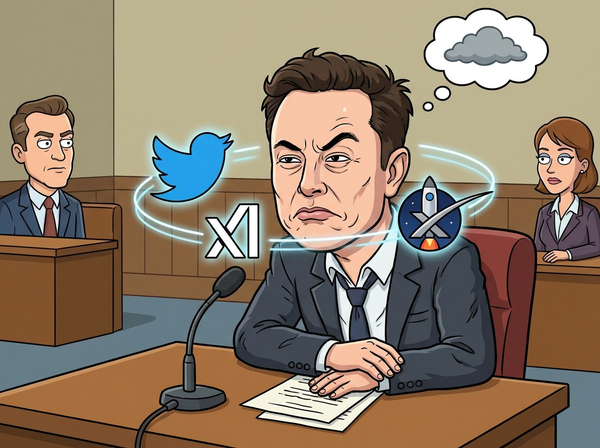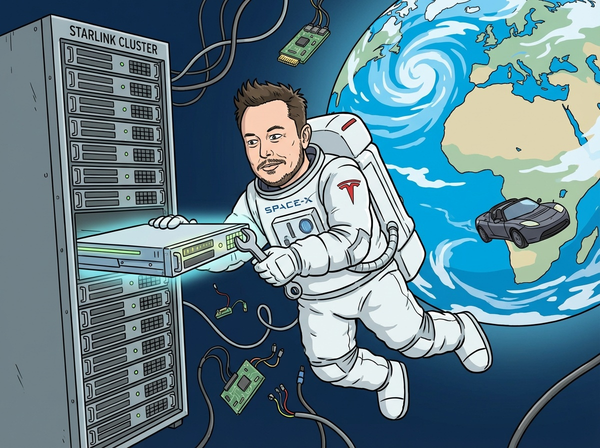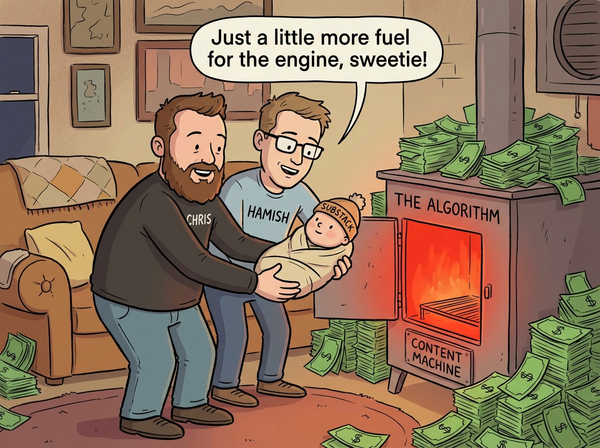Gee, who could have seen this coming?
The STEM pipeline is fraying, AI is going to need people who have a broader base of knowledge and skills. This ought to bring back humanities

This morning, the Gray Lady published an article that has been pretty much inevitable.

The rise of AI tools for coding is beginning to wipe out what used to be a near guarantee of a solid starting job out of school. Starting in the mid 'aughts, higher education had pivoted to emphasizing STEM disciplines, with this being a pipeline to a "sure thing" job in tech, with a six figure starting salary, and the ability to pick and choose where you went.
The rise of Generative AI, and its deployment in software coding in particular, the sorts of jobs that junior coders flocked to are being replaced with automatically generated code, and senior software engineers being relegated to code reviews of this generated code, and debugging it.
“The rhetoric was, if you just learned to code, work hard and get a computer science degree, you can get six figures for your starting salary,” Ms. Mishra, now 21, recalls hearing as she grew up in San Ramon, Calif.
Those golden industry promises helped spur Ms. Mishra to code her first website in elementary school, take advanced computing in high school and major in computer science in college. But after a year of hunting for tech jobs and internships, Ms. Mishra graduated from Purdue University in May without an offer.
She did what was expected. Got early experience, went to a good school (Purdue is not a po-dunk university), and now she's struggling, with only an offer from Chipotle (I assume that she was offered a position in their IT organization, hardly a top-tier employer).
The article does a pretty solid job of recounting the rise and pivot to STEM, and in particular Computer Science degrees:
Since the early 2010s, a parade of billionaires, tech executives and even U.S. presidents has urged young people to learn coding, arguing that the tech skills would help bolster students’ job prospects as well as the economy. Tech companies promised computer science graduates high salaries and all manner of perks.
This led a generation of young students to chase the dragon of the Tech industry. Indeed, it was canon that this was the way. This was the future. And universities built up their curricula to capitalize on this evolution.
Naturally, the humanities and the other arts suffered to make room for a CompSci department on steroids.
In fact, many of these CompSci folks worked on the technology that would ultimately eviscerate their posh futures. The rise of the Generators was the brainchild of this generation. Instead, the next crop of talent is facing this:
“I’m very concerned,” said Jeff Forbes, a former program director for computer science education and workforce development at the National Science Foundation. “Computer science students who graduated three or four years ago would have been fighting off offers from top firms — and now that same student would be struggling to get a job from anyone.”
In response to questions from The New York Times, more than 150 college students and recent graduates — from state schools including the universities of Maryland, Texas and Washington, as well as private universities like Cornell and Stanford — shared their experiences. Some said they had applied to hundreds, and in several cases thousands, of tech jobs at companies, nonprofits and government agencies.
The future is bleak for this. But I am not totally depressed, and no, it is not because I am at the tail end of my career (just turned 60). Instead, this will return focus to the humanities. The coming wave of Generative AI in the workforce, an unavoidable event, is going to demand different skills from the workers who interact with it, and who use it to do their jobs will need skills like critical thinking, broad experience, and the ability to provide the human discernment that this GenAI future will demand.
Alas, this will not be a quick transition, but it is one that is needed.
I will leave you with an anecdote. I worked in scientific instrumentation. Real cutting edge tools used by scientists to explore atomic level material properties. Atomic Force Microscopes. They literally image atoms,
In this world, we used people called "Application Scientists" to demo the equipment to the scientists that use them for all sorts of cool shit. Our term was "Scientists selling to Scientists".
We hired a LOT of PhD's to these positions. But the best applications scientist I have ever worked with got his undergrad degree in History. And he was able to talk to these world class researchers, to understand what they wanted, and to help them get it.
He started as a student in Uni, as an intern, and it grew on him.
We're going back to where that is the norm, and I am here for it.




